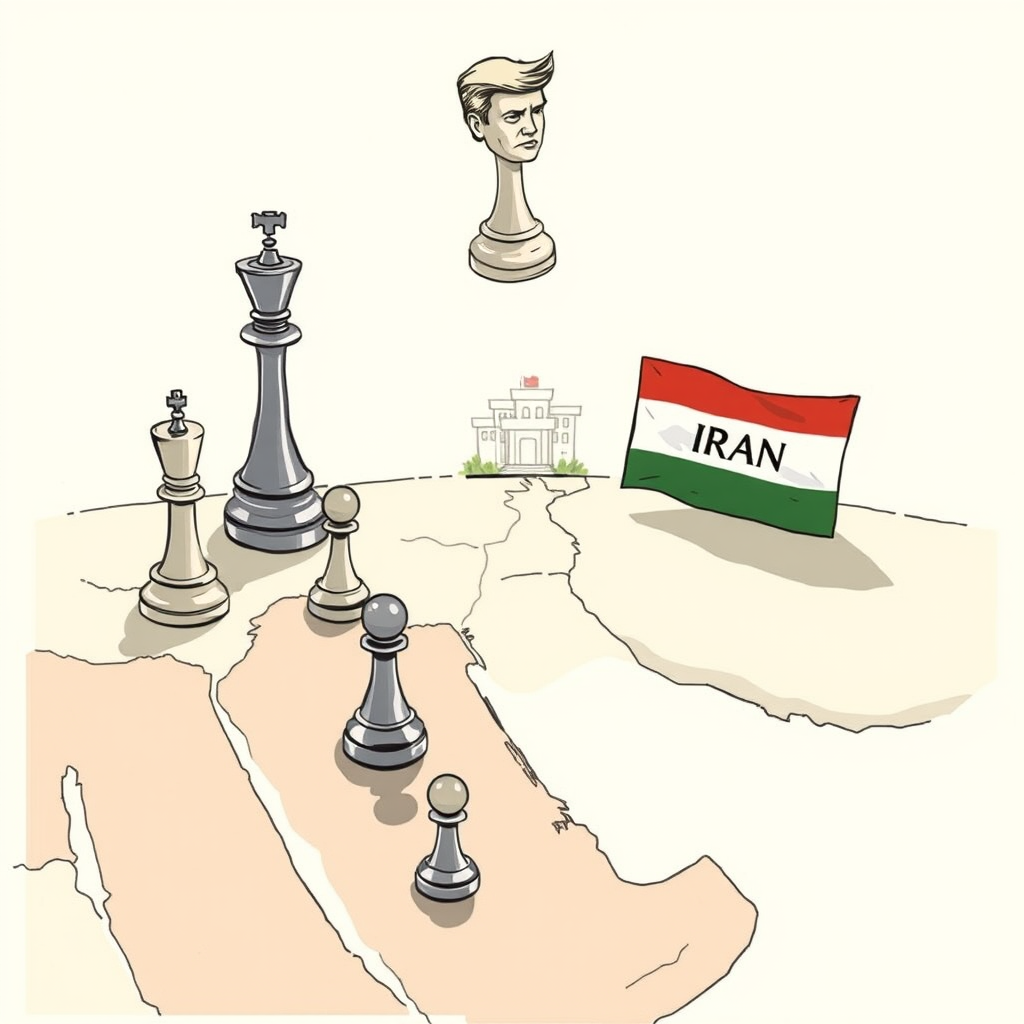Trump Sets Iran Strike Decision Deadline

President Donald Trump is weighing potential military action against Iran and will decide within the next two weeks, according to Press Secretary Karoline Leavitt. Leavitt conveyed a statement from the President during a Thursday press briefing, indicating his decision hinges on the possibility of future negotiations with Iran. “Based on the fact that there’s a substantial chance of negotiations that may or may not take place with Iran in the near future, I will make my decision whether or not to go within the next two weeks,” she stated.
This timeline arrives amidst escalating tensions between Iran and Israel, and as the U.S. contemplates direct military involvement. When questioned Wednesday about potential strikes on Iranian nuclear facilities, Trump offered a characteristically ambiguous response: “I may do it, I may not do it, nobody knows what I’m going to do… I can tell you this. Iran’s got a lot of trouble.”
Leavitt emphasized the administration’s concern regarding Iran’s nuclear ambitions, asserting that the country is “closer than ever” to obtaining a nuclear weapon. She confirmed the President is receiving ongoing briefings from the National Security Council and maintains “constant communication” with Israeli Prime Minister Benjamin Netanyahu.
The current conflict was ignited last Friday when Israel launched what it described as “preemptive air strikes” against more than a dozen sites within Iran. The Human Rights Activists News Agency (HRANA) reports 639 fatalities and 1,329 injuries in Iran as a result of Israel’s initial attack, including 263 civilians and 154 military personnel. Israel has reported 24 deaths and 838 injuries from Iranian strikes.
On Thursday, an Iranian missile strike damaged a hospital in southern Israel, injuring 271 people, according to Israeli reports.
Trump’s potential course of action is creating division within his political base, particularly given his prior campaign pledge to avoid new wars.
While the two-week window allows for diplomatic efforts, Leavitt made clear that military action remains on the table. “The president has made it clear he always wants to pursue diplomacy,” she said. “But believe me the president is unafraid to use strength if necessary.”
The situation is deeply concerning. While diplomacy should always be the primary goal, the potential for miscalculation and escalation in this volatile region is extremely high. A military conflict would undoubtedly have devastating consequences for all parties involved and could destabilize the entire Middle East. The administration’s ambiguity, while perhaps intended to maintain strategic flexibility, risks further inflaming tensions. A clear articulation of U.S. objectives and a renewed commitment to de-escalation are urgently needed.